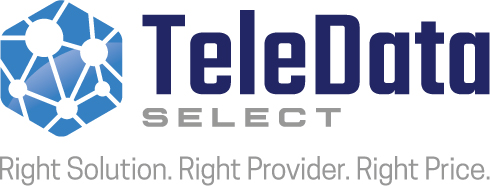When it comes to business telecommunications, there can be no doubt that there is a lot of information and many options out there. Figuring out what kind of phone system is right for your business can be difficult and even frustrating. Vendors can’t be counted on to provide unbiased advice as to what solution is best for your situation.
The first decision on the road to an effective and efficient telecom solution is whether to go with a cloud based Hosted IP PBX vs. a premise based phone system. We have put together this objective overview of the pros and cons of each.
Hosted PBX (Hosted VoIP) Systems
With Hosted PBX, the phone system server resides in the provider’s data center instead of your office. Voice and data traffic is routed to the data center over the company’s internet service.
Pros:
- Cost-effective way for smaller businesses to get rich VoIP functionality
- Minimal IT involvement needed to install solution
- Easy, online access to administer features, manage the system, and add/delete users
- Scales easily in small businesses
- Easy to set up additional extensions or off-site phones
- Built in Business Continuity plan in case of telecom outage impacting your business site.
Cons:
- System improvements and upgrades are performed on the provider’s schedule and may not be available when you want or need them
- Internet service may need to be expanded to support the increased bandwidth requirements of VOIP.
- Hosted PBX service is a relatively new industry. Many providers are start ups, so you’ll need to evaluate the risk that they’ll go out of business or consolidate with another vendor
Premise-Based PBX/VoIP Systems
Premise-based PBX and VoIP systems are solutions where the equipment – including phone system servers, cabling and routers, are installed and maintained locally at your company’s place of business.
Pros:
- Systems and applications can be customized to your business needs and requirements
- Internal IT staff can make updates and changes to the system on the fly
- Ongoing Vendor technology updates available to meet emerging business needs
Cons:
- Upfront capital expenditure can be substantial
- Added expense of PBX trained IT personnel or professional services for configuration support
- Repairs, replacement costs, upgrades, and updates can be hefty expenses if not included in a maintenance contract
- IT Hardware is a depreciating capital investment. Capital that may be better used to generate positive cash flow elsewhere
Knowing the Pros and Cons of a solution doesn’t really help make a decision though. It is important to frame them within the environment that a business exists in. Teledata Select has a process to turn the Pros and Cons into a recommendation for our customers.
The first step is understanding their current telephone system and how is it being used. Number of Users, Bandwidth Usage, Monthly Cost. How well it is meeting the demands of the business.
The next step is understanding what the company wants to get out of the system. What is the company’s growth plan? Are there any new projects planned or in process that will impact their Telecom Systems?
The third step is our analysis of all this information and comparing it against the solutions that are available in the marketplace. Complete with pricing.
Finally, we apply our experience with all the vendors that can supply the needed services to make sure that service after the sale is top notch. Because sometimes the lowest bid will cost you more in time, money and headaches over the long term.
Obviously, this is a high level view of the recommendation process but we wanted to let you see under the covers a little bit to see what Teledata Select does to make sure you are getting the right solution at the right price.
Contact us for a more in-depth discussion of your situation.






0 Comments